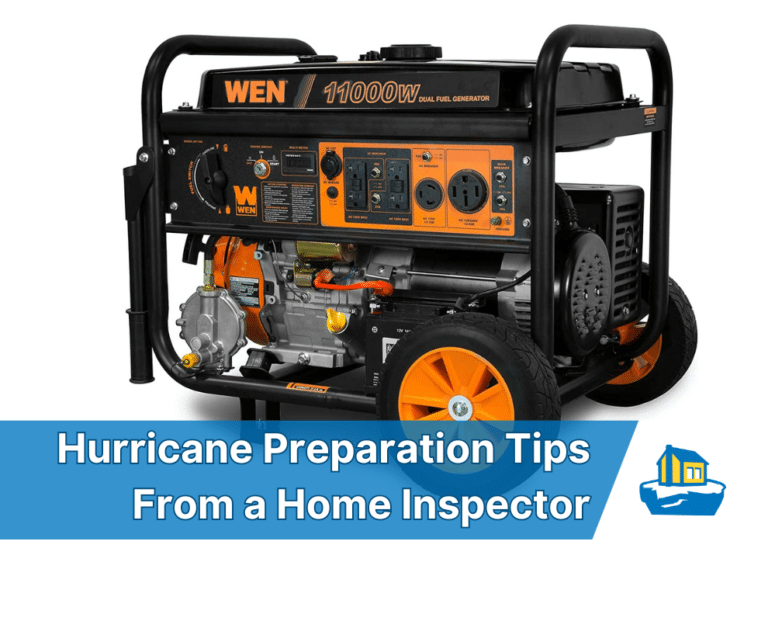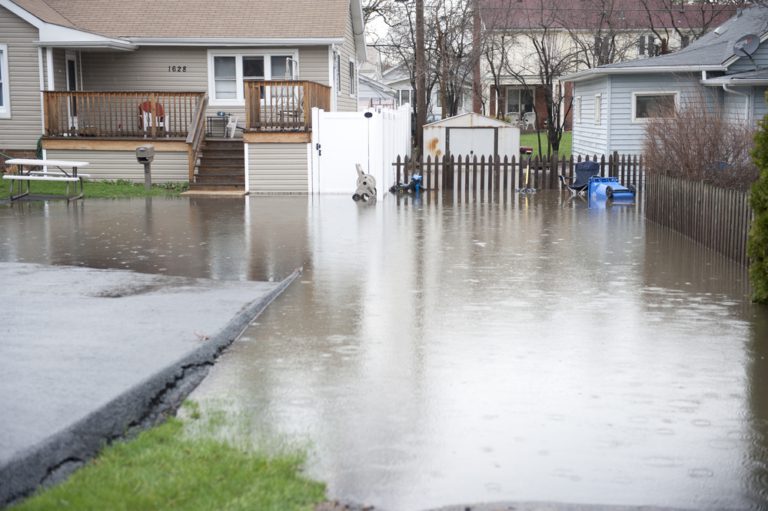4.9 1890+ Google Reviews

These hurricane preparation tips are based on my experience as a Richmond, home inspector. Obviously, the advice might be slightly different in Florida, or other states.
Hurricane season starts in Virginia on June 1 and continues until November 30.

You first need to inspect certain areas of your home that are more likely to be affected by a hurricane. I would start with the roof. The roof protects your attic and the rest of the structure from rain.
High winds can cause wind damage, leaks, and water damage to the attic, which can spread to the rest of the home.
Make sure there is no apparent damage to the roof, such as missing shingles or holes, and make sure your plumbing vent boots and other penetration flashing are not damaged.
Check the strength of the adhesive strips by tugging at a shingle. If it comes up, your adhesive strips are failing and will be prone to damage from strong winds.
Don’t forget the gutters. The gutters will collect lots of water from the heavy rains. Make sure they are in good condition and clean them. Clear gutters are more functional and have a better chance of directing rain away from your foundation.
There are a few things you can only check during rain. So read this blog and check those things the next time it rains, before hurricanes and tropical storms roll in.
Falling branches or swaying limbs can significantly damage your home during a hurricane. They can cause broken windows, roof damage, or even personal injury.
Cut, or trim branches that pose a risk to your house or vehicle. If you have any dead trees, have them cut down now before it’s too late. If you wait until the last minute, you probably won’t find an available company.
Your sump pump is a pump in your crawlspace or basement that collects water in the ground from around your foundation and pumps it away from your foundation. During a hurricane, your sump pump could be vital to protecting your home from water damage.
Not only should it be functional, but it would also be a great idea to install a battery backup so that it continues to function if there is a power outage.
Here in Richmond, we generally don’t board up our windows, but you do want to make sure they are in good condition. Make sure your windows and doors close securely and that there is no damage. Heavy rainfall, and wind driven rain can bring water into your home through these openings.
Not only can your garbage cans and patio furniture fly away during a big storm, but these items can damage your property, or injure your family members if they are struck.
Bring as much outdoor furniture inside as you can, and secure down the rest.
Part of your hurricane preparation plan should be reviewing your insurance. Better yet, call your insurance agent. Many home insurance policies have exclusions for wind damage, hurricane damage, or flood damage. The last thing anyone wants to hear is that their insurance policy won’t cover their property damage because it does not include flood insurance.
Every policy is different, and every homeowner’s needs are different. Call your insurance company or insurance representative today to ensure you will be covered.
This is possibly the most overlooked step in hurricane preparation.
If you have a significant loss and need to make a claim for personal property, you will want to be able to remember what you had and prove it.
Have a plan. Know what you’re going to do and where you’re going to go in the event that you need, or want to evacuate.
Have a hurricane emergency Kit ready to go. Make your kit now. Do not wait until there is a hurricane coming. Things to include:
Hurricane preparation is not complete without a plan for if you lose power. We have some old power lines leading up to our neighborhood. We don’t even need hurricane-force winds to lose power. That’s why I love my portable generator.
It is not hardwired into my house so we end up using quite a few extension cords, but its enough for our gas heating system, some small appliances, and of course the kids ipads to keep them busy.
Most portable generators will not be able to run an electric heat pump though. You will need to consult an electrician if you want a generator large enough for a heat pump.
Don’t wait for when the hurricane hits to try to decide what you are going to do. The best time for your hurricane preparations are now.
As an Amazon Associate I earn from qualifying purchases.